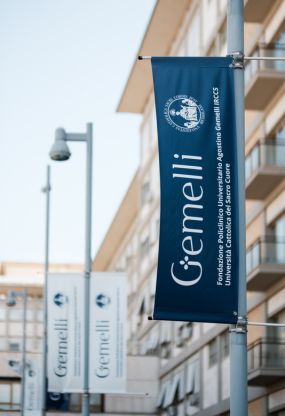Accredited School
The specialist in maxillofacial surgery must have acquired theoretical, scientific and professional knowledge in the field of pathophysiology, clinical and therapy of diseases of the oro-maxillofacial district and the cervical district in pediatric and adult age; specific areas of expertise are Maxillofacial Traumatology, Oromaxillofacial Oncological Surgery, Oral Surgery, Orthognathic Surgery, Salivary Gland Surgery, Craniofacial Malformation Surgery, Reconstructive Surgery of the Maxillofacial District
Basic learning objectives:
- the learning of in-depth knowledge of anatomy, pathophysiology and pharmacology related to the type of School;
- the knowledge necessary for the epidemiological evaluation and the framing of clinical cases, including through computer systems;
- the organization and management of health services according to the most recent directives, knowledge of the principles of asepsis and antisepsis and of the problems inherent in the organization and environmental hygiene of operating theatres and surgical wards;
- the acquisition of skills and practical experience necessary for an overall clinical assessment of the patient;
- knowledge of the medico-legal aspects related to one's profession and the laws and regulations governing health care.
The resident must also acquire the knowledge base necessary to organize and manage his activity as a maxillofacial surgeon in relation to the characteristics of the structures in which he is called to operate;
Educational objectives of the type of School:
- the acquisition through the common trunk of the fundamental knowledge relevant to the objective clinical examination and operative medicine;
- knowledge of surgical instruments and suture materials as well as traditional and alternative surgical techniques and methods;
- a basic knowledge and the related practical experience necessary to define and personally verify on the basis of the overall assessment of the disease and the patient, a correct diagnostic definition of the pathology in individual patients and the indication of the most suitable type of treatment according to the risks, benefits and results for each individual patient;
- be able to address and solve problems related to the setting and management of the immediate postoperative course and remote controls on the basis of an overall assessment of the disease and the patient;
- be able to personally deal with the execution of urgent surgical acts; be able to correlate the general characterizing training activities with the specific ones characterizing the type of School.
The following are Characterizing Objectives of the type of School (Scientific Disciplinary Sector MED/29 MaxilloFacial Surgery):
- the acquisition of theoretical, scientific and professional knowledge for carrying out care activities in the field of maxillofacial and odontostomatological surgery in children and adults;
- the acquisition of skills in the pathophysiology, clinical and therapy of diseases of the oro-maxillofacial and cervical district, with specific knowledge of surgical techniques in maxillofacial surgery, advanced surgical methodologies and microsurgical methodologies in the field of maxillofacial reconstruction;
- the acquisition of specific skills in Maxillofacial Traumatology, Oro-Maxillofacial Oncological Surgery, Odontostomatological Surgery, Orthognathic Surgery, Salivary Gland Surgery, Craniofacial Malformation Surgery and Reconstructive Surgery of the Maxillofacial District.
The following are similar or supplementary objectives:
- the acquisition of basic knowledge, class-specific knowledge, related knowledge, and the related experience necessary to diagnose and treat pathologies of common interest with the other types of the class or other classes;
- the ability to recognize, diagnose and set up treatment, defining, in an overall view, the priority in cases of multiple pathologies or injuries in patients who require the necessary use of specialists of the types mentioned above.
The following are compulsory professionalizing activities to achieve the purposes of the typology:
a) at least 50 major surgery operations, 10% of which as the first operator. The rest as a second operator;
b) at least 100 operations of medium surgery, of which 25% as the first operator. The rest as a second operator;
c) at least 250 minor surgeries, 40% of which are first operative (laparoscopic surgery procedures as well as outpatient and D.H. procedures are included) The rest as a second operator.
Demonstrate that they have provided direct and responsible care, with related diagnostic and therapeutic acts, to an adequate number of elective, critical and emergency/urgent patients.
The Resident to have provided direct assistance for two two-month periods in General Surgery and in Emergency Surgery and Emergency Room.
He will be able to compete for the diploma after completing the surgical activity.
For the purposes of the circulation of the specialist in Maxillofacial Surgery in EU countries, the training course allows to 77 acquire the skills of the Master's Degree Graduates in Dentistry and Dental Prosthetics limited to the professionalizing ones and without acquiring the title of LM.
The student will be able to compete for the diploma after completing the professionalizing activities.
As part of the training course, the student will have to learn the scientific bases of the type of School in order to achieve full maturity and professional competence that includes an adequate ability to interpret scientific innovations and critical knowledge that allows him to consciously manage both assistance and his own updating; In this context, participation in meetings, congresses and the production of scientific publications and periods of attendance in qualified Italian and foreign institutions useful for his/her training may be envisaged.




